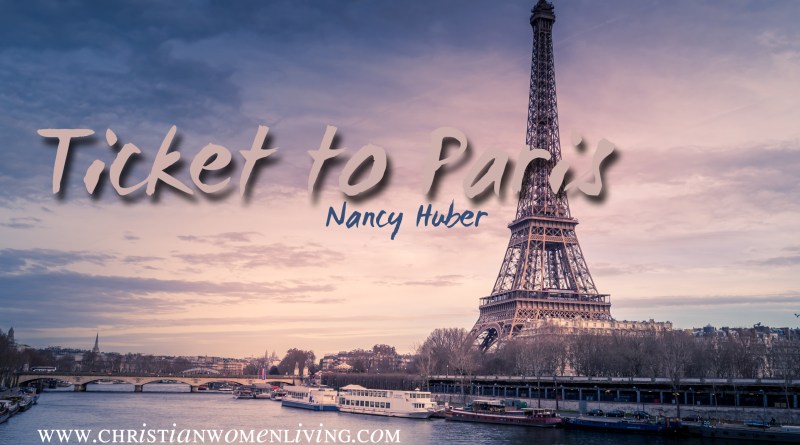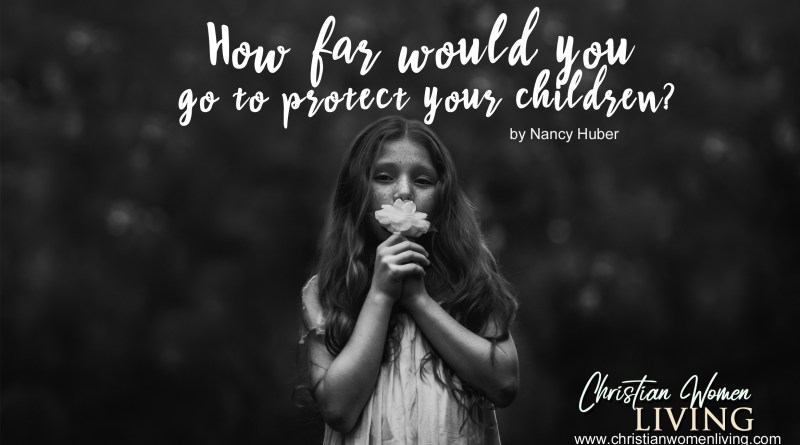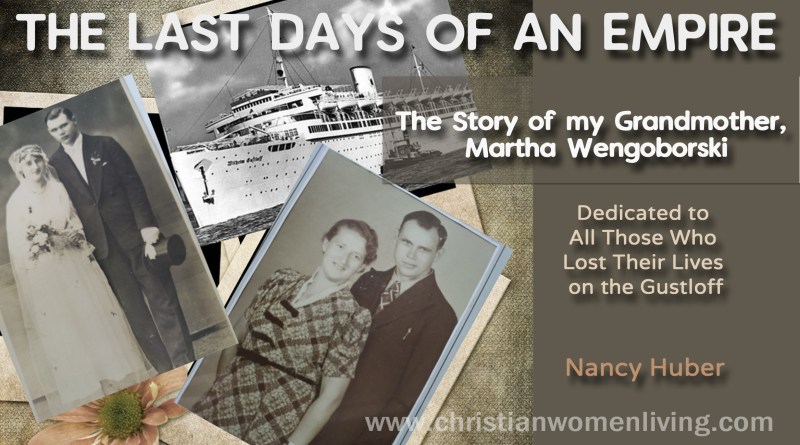Ticket To Paris

It was 1987. I had met Andreas the year before – had fallen madly in love and knew we were going to spend the rest of our lives together. We also knew we wanted to visit Paris. It was only 8 hours from where we were living at the time in Germany, so what was hindering us to see the city of love?
We always received travel brochures through the mail at that time, luring us to book the trip of a lifetime. And the tours they offered were cheap. We could do it. We were hooked. The brochure sounded promising. The traveler was to be picked up by the comfortable, luxurious travel bus Friday evening at 10, and arrive in Paris just in time for breakfast. After a short city tour, one could discover Paris on their own. The next morning would include a visit to the famous Versailles castle and its breathtaking gardens before heading back home.
Yes, this sounded too good to be true and we signed ourselves up. We couldn’t wait.
On the day of our tour, Andreas and I stood at the bus station, anxiously waiting. When the bus arrived, we hopped on and found our seats. The journey could begin. The hours dragged on. As we drove through the night, we found it difficult to get comfortable. Our muscles ached on the hard and lumpy seats. Sleep did not find us, and we arrived in Paris at 7 o’clock, bleary eyed and dead-tired. We had envisioned a romantic bistro where we could enjoy our promised croissant and coffee, yet the dream of that was slightly shattered when the bus pulled up beside a huge cafeteria style restaurant, where we each received one croissant, along with a small piece of butter and some jam, and a lukewarm coffee.
Andreas and I ate in silence, yet our eyes both spoke the same thought. “This could only get better.”
All of us were collected back into the bus, and the tour guide promised us a fabulous city tour which would start immediately. I could hardly keep my eyes open. All we wanted was to be brought to our hotel room so we could rest, and then venture out on our own. There was so much we wanted to see. The Arc de Triumph was on the top of my list, and of course the Eiffel tower, the Seine River, and many other things; too many to mention.
Hours later we were still touring through Paris. By now I had lost all feeling in my lower part of the body, and I was aching and dead-tired. I needed to stretch my limbs and get out of this bus – soon. More hours rolled by and Andreas and I kept checking our watches. This was utterly ridiculous. We had been in the bus for over 16 hours when the bus finally stopped in front of our hotel. We grabbed our bags and staggered towards the old, tall building. Blessed rest awaited us.
After signing in and receiving our keys, we entered an ancient looking cage-like elevator, which brought us to our floor surprisingly in one piece. We entered our room and stood frozen, staring at the room. The dark, ripped wallpaper revealed deep cracks. The room was stuffy and small, but it had a sink. Oh, blissful happiness. I immediately poured cold water over my wrists and sprinkled my face with the refreshing coolness. This was one small remedy against low blood-pressure, which always worked for me.
Meanwhile, Andreas had learned that the toilet was down the hall, to be shared by numerous other hotel guests on this floor. O boy! We looked at our watches. It was already 5 pm. We were so exhausted and we were running out of time. We had to make a quick decision. There was only time to see one tourist attraction.
After freshening up I forced myself awake. We were in Paris. This was our chance of a lifetime. Who knew if we ever got this chance again? We did not want to miss this awesome opportunity. Andreas and I decided to at least see the Eiffel tower. We somehow had to do this. We left the hotel and first stopped at a small restaurant close by. Our stomachs were complaining and we needed to strengthen ourselves first before diving into our next adventure. After dining we found the metro and miraculously found the right train to bring us to our destination. As we climbed up from beneath the depth of the city, the grand tower greeted us with its beautiful lights. We had made it.
After paying our tickets, we stepped into the elevator, which brought us to the second level. From here we had a full view of the glittering city beneath us. Our hearts throbbed in our throats – probably due to all the stress – who knew. We stayed for a while, just taking in the beauty, resting our eyes on the glamour and magnificence. In the distance we could see the soft glow of the arc de triumph, and a soft sigh escaped my lips. Another time, I hoped. We arrived back at the hotel like the walking dead, and plunged into bed.
After a quick breakfast the next morning, our bus collected all of us at the front entrance. We couldn’t wait to see Versailles, and sunk into our seats. Over the microphone, we were informed that Versailles was cancelled for today, but the tour guide promised us another great destination – the Paris Flea Market. Andreas and I looked at each other, disappointment and anger reflecting in our eyes. We did not come to Paris to see the flea market. But we were stuck, and couldn’t venture out on our own.
We arrived at the famous market, and were left to browse for several hours. We couldn’t believe that we were left here, of all places, with so much time on our hands. We walked by the tables to admire rusty nails and broken and chipped windows, old books and candle holders. We walked back and forth, from one end to the other, and back again, without buying a thing.
Finally, it was time to climb back into the bus. Another long drive awaited us, this time both of us looking forward to our own beds and the much-needed sleep we both needed.
To give you some advice. Please don’t book a cheap bus tour. You truly get what you pay for.
Flying Carpets in Djerba: Our Adventure in Tunisia
Who has not dreamed of Arabian Nights? The mysterious stories of Ali Baba, Sindbad, Aladdin and the captivating Princess Scheherazade, who, by her beauty and intelligence, managed to escape the executioner.
Many years ago, I was on a plane to northern Africa; to the charming little island of Djerba, off the coast of Tunisia. On the plane with me were my husband and our three young children. This was to be our most exotic holiday ever.
We had no idea what awaited us across the Mediterranean Sea. Our heads were filled with romantic stories of the past, and we couldn’t wait to be among them. We arrived at the airport with our pale, European skin and naivety. What could go wrong?
At first glances, everything was beautiful and perfect. The hotel was a dream in white with manicured gardens and palm trees. Behind the enormous white-washed building one found the roaring, wild Mediterranean Sea, with endless beaches. Yes, this was what we signed up for.
A few days after our happy arrival we received the chance to visit a real bazaar. In my minds eye I had pictured these magnificent, beckoning markets with their spices and fruits and flowing, see-through fabrics.
This was the day! The moment had arrived!
Only – when we arrived, it was nothing we had expected. Nothing like the pictures we had seen, and what they had silently promised us. It was just an ordinary market. Nothing more. Street vendors on your right and left side, with an aisle in the center.
But – there was one difference. One difference which shattered our hopeful dreams. As we started walking over this bazaar, the men approached us quite aggressively, wanting us to buy their products. We had to pull our children close to us, and like horses, whose eyes had been covered, we slowly pulled ourselves away from the vendors. It was afterwards, that I realized with great disappointment, that we had not seen a single item on that bazaar.
To recover, we retrieved back to the hotel to watch the people by the pool. After a while we left the pool and strolled down towards the long beach, which lay quiet and empty in front of us. A strong wind blew from the east, tarring at my dress. We hoped the next day would be more promising.
We signed ourselves up for a little mini-tour hosted through our hotel. The Tunisian arrived cheerful with his little bus, and we climbed into the vehicle, excited for our adventure. All started out well. He showed us interesting things on the island.
Then we stopped at a tiny building which hardly let any sunlight in. Inside, crammed together tightly on the ground, sat young girls. Chattering and laughing, their tiny fingers worked busily with a hook, weaving through thick wool, to create a beautiful carpet. Our two oldest were shown how to hook the wool thread, which, of course, our children found quite enthralling. We said our good-byes and continued on with the journey.
Our guide stopped the van in front of another building, and he urged us to come in and enjoy some tea. We didn’t think much of it, so we followed him. Did I mention before that we were a little naïve? We entered the Lion’s Den in disguise of a harmless looking Carpet Store. We were shown to a corner, where we sat down. A man brought us Moroccan Peppermint Tea in a huge, silver pot and poured us cups with the steaming sweet liquid. The best peppermint tea I have ever tasted; unfortunately I have not been able to duplicate that wonderful, exotic taste since.
What happened next was so unexpected and sublime, that we were utterly speechless. One man began rolling out one carpet after another in front of our feet, wanting us to admire the unique patterns and colours. And I truly have to say, yes, they were very beautiful. But we did not come to Djerba to buy a carpet. We did not have the sufficient funds to buy one of these very expensive carpets. As a young family, we had to make ends meet. It was a miracle that we found ourselves on this trip. How could we explain this to these people, who didn’t speak our language, and we didn’t speak theirs? It was impossible. They saw us as rich Europeans with their pockets full of money. And – who can blame them, really? In most cases, it is so.
Carpets came flying from all angles and sides – all shades of blues, reds, and golds intertwined into one blurry big dot in front of our eyes. By now, they had every man in that store rolling out carpets, letting us know they could ship the carpet to wherever. What started out as something innocent and harmless had turned into something ridiculous and annoying. All we wanted was to get out of that building, but they would not take no for an answer. I guess we were as stubborn as they were, for standing our grounds. Finally, after what seemed like hours, they released us out of their grip, and a most displeasing tour guide greeted us outside. One can imagine how relieved we were to be back at our hotel.
We recovered from the shock quickly and tried to enjoy the beauty of the island, which, by the way, is covered in Saharan sand. We walked barefoot most of the time, enjoying the feel of the fine kernel between our toes.
One more adventure awaited us on this most interesting holiday. This visit wouldn’t be complete without a ride on camels. So, we hired a guide to take us for a one-hour ride. We were very excited! My husband rode the camel with our oldest son, I took our youngest son along, while our oldest daughter was the privileged one to ride on her own.
As for those who have sat on camels before know what I am speaking of when I say we had to hold on to dear life itself. Especially having to hold my two-year old in front of me proved quite a challenge, not wanting to lose him along the way.
The camels had looked so inviting with their huge, cozy red cushions. They had looked very comfortable, but only a few minutes into the ride I thought they had been filled with cement. While we were swaying through the desert, my husband and I noticed that our hour was soon up, but the guide kept on walking away from the hotel. We tried to communicate with him, but he could not be persuaded. He had to show us this Mosque, which was not far away. The Mosque turned out to be an ordinary, little building in the old Tunisian style, totally deserted between sand dunes, palm trees and huge aloe plants.
We made it back to the hotel two hours later. My husband was fuming mad by the time we arrived, telling me he was not paying overtime. He was arguing with the guide for many minutes, and the argument went back and forth, until final both agreed upon a price.
We must have looked like drunkards returning to our little cottage. We were sore and tired, but happy to have made it back in one piece. We had survived yet another adventure on Djerba.
How far would you go to protect your children?
When we give birth to our child, holding the warm, wrinkled body close to us, the instinct of protecting our child is born into our hearts and our being. It leaves no question how vital and significant this becomes for us mothers.
But to be truthful, we have been bred securely into society, making us feel safe and sound. The real need to protect our child has somehow vanished from our every-day lives. We hear stories from different times, or different places, and it seems so far away from us, unable to reach us in our bubble of security.
So, when things weren’t going according to plan, our lives back in Germany in the year 2000 were somehow thrown off the rail. We had to make a decision – one that was not easy, and would carry along some consequences…
When our oldest child started school, it felt like a piece of my heart had been torn from my flesh. It might appear silly, or strange, but that was how I felt. I was not ready to release her into the big world, and it was very difficult for me. Things became a little easier soon after, once we met her wonderful teacher, a middle-aged Christian lady, her soft-cushioned body reflecting warmth and stability to the children. They all loved her and the whole class atmosphere was incredible. I wish every child could experience a loving teacher like her once in their life-time.
All was well, and my worries slipped off my tense body. Then our second child, our son, started school, and everything changed.
We were met by a modern, young woman on the very first day of school of our son. My gut was trying to speak to me, yet I ignored the gentle voice of foreboding and premonition.
Our son went through first grade without any major complications. He had been held back one year due to some developmental issues, and I was happy to see he was coming along in class. Some years prior to this, one pediatrician had told us bluntly that our son would never be able to make it through school, and my heart fluttered slightly with pride when I saw our little boy reading his first sentences.
Life was falling into balance with two children in school and two small children at home. It’s funny how we can feel the boards slipping underneath our feet when we think all is well. The old feeling of foreboding returned in my gut area when my hands clutched a small book called ‘Stilleuebungen und Fantasiereisen,’ (Fantasy-trips) by Professor Dr. Reinhard Franzke.
Reading the book left us confused and scared. It was like someone had punched me in my gut and I had swallowed a very bitter pill, leaving me sick to my stomach.
My mind was bombarded with new terms and phrases. Words like esoteric, hypnosis, shamanism, yoga and mandalas, out-of-body-experience, trance-inducing circle exercises, and shamanic soul journeys flew towards me from the pages. Then this Professor digs in deeper into occult practices in our schools, and he explains in great detail the various practices teachers today (in the year 1999) use in classrooms.
What are fantasy-trips – or out-of-body-trips? Let me explain:
A child is to picture themselves entering through a hole, a door, or a window to enter a different world. They have to imagine a doorway, in which they have to walk through a long tunnel. To help with visualizing this process, Mandalas are used for this meditation. (Rozman, 1996)
Once on the other side, the child is to quickly travel to another place, by using either a flying carpet, a helicopter, a magical horse or a spaceship.
These trips go either up or down; into the universe or deep into the ocean, a mountain, or the center of the earth.
The child has to return back to its starting point by using the exact same way as it has come. This is crucial. (Preuschoff, 1996, p. 97; Schneider/Schneider, 1994, p. 12/13).
They hear a voice which guides them back to their room. Some even will say boldly that the child should return to his/her body.
One might ask this question. From where should the children return; if they never left their body?
And, why is it so important to return the exact same way? How and why can it come to complications, if one should decide to go another way?
My husband and I were stunned and stupefied when we studied the book over and over. And it was then that I realized we had reason to worry. If this was true what Professor Franzke was explaining in great depth in his book, then our son’s teacher would be the likely candidate to be practising such things.
Meanwhile, our son had made it into grade two, when one day, I took up all my courage and approached our son’s teacher. I meant to ask her if she was practicing fantasy trips with her class. I remember my heart throbbing in my throat as I waited by the door to see her.
Finally, class was over and she stepped out of the large room to see me. I asked her the specific question, when she nodded her head, smiling at me, saying yes, she did those things with her class. I think she probably thought she was doing a wonderful thing with her students.
Taking a deep breath, I asked her to please send our son outside next time when doing fantasy trips. With that same smile pasted on her face she nodded her head, promising me that she would.
Over the next few months, I asked our son every day after school, if he had been sent outside, and he shook his head each day. I was devastated, and getting more and more frustrated with the situation. I didn’t know what to do.
Unfortunately, this was not the only problem my husband and I had to deal with. Our oldest daughter had started German high school, which begins in grade 5. I had learned on the info evening the school offered for new parents that they, the high school, would be offering fantasy trips in all classrooms.
There it was again.
It seemed there was no escaping the occult practices at our schools. I felt overwhelmed and alone.
During our time of despair God reached out in His amazing way. He put people in our paths that homeschooled. I had not met anyone who homeschooled, so this was something totally new to us. The more we thought about this, and talked with people who were homeschooling their children, the more I became convinced and convicted that this was the way to go.
Of course, we knew of the dangers surrounding us. Homeschooling was illegal in Germany. We learned that parents were put into jail. But, because there were more and more families beginning to homeschool, the German government felt overwhelmed and wasn’t quite sure how to deal with this uncomfortable situation. So, instead of throwing parents into jail, they took it a step further. They went deeper – where it hurts.
They took away the children. Send the children off to foster families, far away from the parents.
In other cases, the government went out to destroy families. If they owned a business, they loaded higher and higher fines on the family, knowing full well they would not be able to pay their debt in full.
Despite knowing the danger, we couldn’t turn a blind eye to the things happening in the German school system. Something needed to be done and we needed to protect our children.
It was the most difficult decision we ever had to do. We removed our children from the public school system and kept them at home.
It was only a few months after we began homeschooling that we were ordered to court. It didn’t take long for the German government to learn of our doings. And I believe they had help by a certain young teacher.
What was really nerve-wracking were the constant letters from the authorities. Sometimes several letters would fly into our mailbox weekly. Too much for my taste. I was so very thankful that my husband took it into his hands to answer each one of them, because truth be told, I had absolutely no strength and energy to deal with them.
I had two very young children to look after, while trying to teach school to my grade 5 daughter and grade 2 son. It was a daily challenge, and things never went according to plan.
But for those that homeschool, you know what I’m talking about. You know that things never go as you had planned and your days sometimes appear like a warzone, leaving you at your wits end. But somehow, by evening, things always turn out, and you smile and sigh deeply when your children sleep peacefully in their beds.
That is the moment when we know with deep certainty that everything we mothers do, is worth it in the end.
The risks, the pain, the endurance, the giving – we’ll do it over and over again, and that’s when we realize we would do anything to protect our children.
Nancy Huber is the author of Homeschooling Against All Odds: Our Faith-Walk Experience: Journals from an Audacious Mother, and Days of Fire: Battles for Freedom.
__________________
Current Situation in Germany
2008 – a German family with 2 children wanted to leave for Spain for fear of deprivation of custody.
The Supreme Court in Germany stated: Teaching in your own four walls is abusing parental care. “Welt.de” January 8, 2008.
2009 – A German family with 5 children send an application of asylum due to Christian persecution to the USA.
They now live in Tennessee, USA.
“Handelsblatt” January 27, 2010.
2012 – 2015 – German family with 4 children have to pay a fine of $1,500.
On August 29, 2013, 8 am, twenty cops and social workers came to their house and took the children. The parents were deprived of custody.
The children were in custody by the government for 3 weeks. During that time the parents were allowed to see their children for 2 hours.
In October of 2013, the children were returned shortly to the parents. The family tried to immigrate to France, but German Authorities told them, they (the parents) can go, without the children.
“Die Welt” April 28, 2015.
At this moment there are 800 cases of parents homeschooling their children across Germany (2019).
THE LAST DAYS OF AN EMPIRE
The story of my grandmother Martha Wengoborski
Dedicated to All Those Who Lost Their Lives on the Gustloff
BY Nancy Huber
Have you ever wondered about fate, and the life of your grandparents or your great-grandparents?
Looking at my grandmother’s life in Eastern Prussia during the war, I know there were several incidents which could be classed as miracles. Her boat was one of the last ones to make it out of Prussia. Over 9,000 people died on the Gustloff, and who knows how many others have lost their lives on the countless other boats, hit by Russian torpedoes.

Winter had come early in the winter of 1944. The crisp wind blew from the Baltic Sea, spraying a salty ice layer over the roads and sidewalks of the small seaport town of Pillau (Baltiysk), 43 km west of Koenigsberg (Kaliningrad), Eastern Prussia.
It was in the early morning hours, that Martha had felt the slow, piercing arrival of her unborn child. She had secretly been hoping for a little girl, to take away that cold gap within her broken heart. The agonizing piercing pain tore through her body again as she was reminded of Christa, her first born.
It was a cold winters day in Lyck, December 28th, 1932. Martha’s body had trembled under the piercing labor pains, as her baby pushed her way through the birth canal into life. Then, finally, Martha had held her wrinkled, beautiful baby girl close to her heart.
Two years later, on September 14, 1934, Martha delivered a healthy little boy. She and her husband named him Gerd, meaning strong spear. This little boy would, in a few years time, live up to this promising title.
In the year of 1937, on September 29, Martha gave birth to another strong, healthy boy, whom they named Ulli – short for Ulrich.
Then, in 1939, February 19, the third son would be born to Martha and Paul. They named this boy Klaus.
Hitler, by this time, had risen to power and a different wind blew over Eastern Prussia.
On September 1, 1939, Hitler marched into Poland. The inevitable happened, what many had feared. Germany was at war.
Life in the little town of Lyck continued as normally as possible. Paul worked as a carpenter journeyman, providing for the growing family. Life was hard, but they managed.
It was at this time that Paul was pulled into the army and was able to work from Pillau as a carpenter. The family settled in Pillau, so Paul could be close to the barracks, where he was able to work in his line of work. They moved into a tiny house on S.A. Strasse 60, (abbreviation of Sturmabteilung – Storm Troopers).
A week before Christa’s 9th birthday, she fell on the school playground. The children had played a game outside when Christa had lost her balance and fell on her head. She threw up shortly afterwards, a sure sign of concussion, yet the harsh teacher left her at school and did not permit her to leave early.
Martha had been outraged about this, when Christa came home, and the boys told her of this cruel incident. Martha made her daughter rest on the couch, and called on the doctor, who looked at Christa the next day.
Christa stayed home the next few days, still not feeling well enough to go to school. Martha was downstairs in the kitchen, Klaus and Ulli playing by her side while she was preparing her daughter’s birthday cake. Tomorrow her little girl would turn 9 years old.
Gerd was upstairs on the bed with Christa, playing Schwarzer Kater, an old traditional children’s card game. Suddenly, Christa convulsed, her entire body went rigid. Gerd screamed, and Martha came running up the narrow steps to the loft, where her children had their beds.
All help came too late. Christa died one day before her ninth birthday. (Years later, Martha concluded that perhaps Christa had suffered from a brain tumor. Christa had complained frequently of headaches prior to her accident. The accident had then perhaps ruptured the tumor, which caused her sudden death).
The birthday cake stayed untouched, and no birthday was celebrated on December 28th, 1941.
The pain was hidden deep within Martha’s heart, as she continued caring for her three boys. About a year after losing her daughter so tragically, Martha noticed her inability to become pregnant. She saw her physician who did a minor procedure on Martha.
One year later, a certain glow reached Martha’s eyes as she learned of her pregnancy. The pregnancy went uneventful and without complications. She felt good and her husband worked close by. Not like other women, whose husband had been called away to fight at the front, Paul was working at the barracks.
On November 23, 1944, Soviet troops entered Czechoslovakia. It was also on this Thursday, little Ursula Roswitha, my mother, entered this world. Tears of joy pricked Martha’s eyes as she beamed down at her daughter.
Soon after her daughter’s birth, Martha tried to keep her boys occupied as good as possible, while her insides trembled of the constant news of war triggering in to Pillau. The month of December brought terrifying news, known as the Battle of the Bulge. It was launched through the densely forested Ardennes region in Belgium and Luxembourg; Hitler wanting to stop the enemy reaching the port of Antwerp.
But it was January 13th, that chilled Martha to her bones.
Paul, her husband, had been called away. He and all able men had been called into the barracks to prepare for the inevitable attack through the Russians. Everyone knew they were coming. The question was when.
On January 13, the town of Pillau was alerted to evacuate immediately.
Little Ursula was only 20 days old when the order hit their town. Martha was still recovering from birth when her life was turned upside down again.
They only had a few minutes to prepare. What to take and what to leave behind.
Martha had a stroller and packed in everything she could think of into the areas beside her infant daughter. She cast one quick glance towards their cat and knew she had to be left behind.
She dressed her boys warmly, making them wear all they had on their young bodies. Gerd, her oldest being 10 now, had to be the man of the small family.
When they opened the front door to leave, a cold gush of wind hit them. It was minus 22 Celsius on this fateful evening, when Martha, Gerd, Ulli, Klaus and little Ursula left their home.
It was some distance to the port, and with great difficulty, Martha pushed the stroller through the deep snow. Gerd had to walk ahead to scout out the area. Word had reached them that Russians dressed as civilians could be around. A scary thought for the mother of four, as she trusted her 10-year-old boy to protect them.

Hundreds of other women and children, along with Martha and her children arrived at the port of Pillau. Word reached them that the S.S. Gustloff was in Gotenhafen, just across the bay from Pillau. Martha was able to find her husband in the crowd of desperate people. With excitement he told her that he would be able to get passage for them on the Gustloff. He wanted his family out of Pillau as quickly as possible.
Martha would have been excited at this news had it not been for one very important detail. Most of her friends and neighbours had passage for the next ship leaving Gotenhafen. She wanted to be on it with people she knew. She did not want to be amongst strangers on a big boat, heading to a hazy future. She understood the Gustloff was one of the fanciest ships around, Hitler’s Titanic. The captain of the Gustloff had learned about the distress and was willing to take on as many refugees as he could. But none of that mattered to Martha. She wanted to stay together with her friends and neighbors.
At this time, 100,000 desperate civilians had poured into Pillau. Command squabbles delayed the departure of the Wilhelm Gustloff, until finally, on January 28, she was able to leave port. The numbers exceeded the allowable passenger list, with people sitting on staircases and sitting in the passageways. There were people everywhere. And each one was more than happy to get out Prussia.
Martha and her children waited in the barracks until another ship would arrive to rescue them. They needed patience, for time was running out.
Word spread quickly that the Soviets had taken Koenigsberg – also known as the Battle of Koenigsberg. Heavy fighting took place for control of overland connection between Koenigsberg and the port of Pillau.
Tension grew as the news spread. People were getting anxious, and the nerves of the women were thin as paper.
Two days after the Gustloff had left, the horrendous news left everyone numb. The Gustloff had been hit by three torpedoes.
Just then word arrived that another ship had dropped anchor in Gotenhafen. Martha and her children were to leave. The news of the Gustloff still underneath her skin, Martha assembled her children and they piled themselves into the small fishing boat, which was to carry them across the bay to Gotenhafen. Gerd sat at the front, his eyes ahead, when suddenly his eyes perceived horror. Pieces of torn bodies swam all around them. The entire bay was covered with dead bodies, yet the fishing boat continued, gliding amidst the black waters.
Silence surrounded them, no one spoke, nor dared to breathe as the boat made its way through the bodies. Martha tried to cover the eyes of Klaus and Ulli, not wanting them to have this horrible imprint upon their young minds. It was bad enough that Gerd had to watch this scenario, but she could not help this. She just prayed with her motherly heart that this would not affect his youth.
Finally, they reached Gotenhafen, where a huge ship awaited them. All refugees piled onto the planks and found their way inside. Each one prayed that the Russians would not find them. Mothers with pale, ghastly faces held on to their children, while the ship lifted anchor.
This ship was to take them to Germany, to the port of Bremen. Even though Martha spoke German, she had never been to Germany. But fear held her back of even hoping and dreaming of another future. All she wanted, like all the other mothers aboard this ship, was to make it though the Baltic Sea, unseen – that no torpedoes would find their ship.
9,300 people died on that fateful day. 1,239 survived the sinking of the Gustloff. This is the highest death toll in maritime history, yet so few know of this dramatic, sad event in history.
As soon as the ship left the port of Gotenhafen, my grandfather, Paul, turned around and left for Koenigsberg to enlist. He was one of the last soldiers to enter the war. If he would not have enlisted, and the S.S. learn that he had not enlisted yet, they would have stood him up against the wall to be shot. Paul was very wise in doing so. He entered the war as a real soldier, only to be captured by the Russians soon after. He was released after the war and reunited with his wife and children in Germany.
Once the war was over, the family moved to Leverkusen, where my grandfather became a Postal worker. He retired in Leverkusen. Both grandparents died of a ripe old age, but my grandmother died at the proud age of 101 in 2010.
I often wonder about fate and how our lives take unexpected twists and turns. I see the hand of my heavenly Father in all of this, and I stand in awe at the strange occurrences. If Christa, my aunt, would not have died, my grandmother would not have seen a doctor, to aid with her next pregnancy. My mother would never have been born if Christa would have lived. Had my grandmother listened to her husband, she would have been on the Gustloff, and my family would not exist today. None of us would be here.
Just a coincidence? I think not.
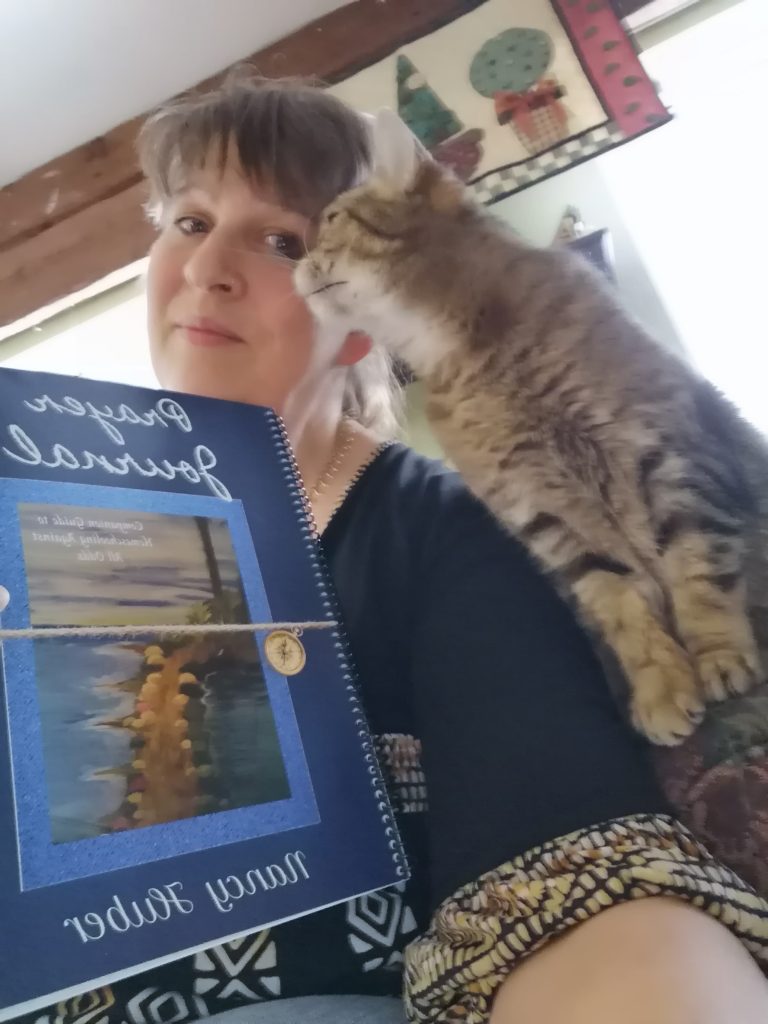
Tiger-approved!
Today, my proof copy of my Prayer Journal arrived.
So excited!
This Journal is for women who need encouragement, a little bit of art and words of Scripture in their lives.
70 pages of full-color
Pre-Order your copy today. Contact me via email.
$ 30
Finding Your Voice On Paper: 5 Easy Steps to Become a Writer by: Nancy Huber
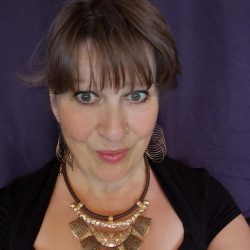
You finally sit down in your comfortable chair, pen in hand and in front of you a crisp, white sheet of paper.
You are ready to write!
But then something happens. Your brain freezes.
We’ve all been there.
You had so many ideas dancing around in your head, ready to escape onto the empty page. You wanted to set them free, to no longer be trapped in your mind. You wanted to do one thing.
Write.
Fear takes over.
We Are Our Own Worse Enemy
Afraid of what others might say? Afraid you sound foolish? Fear of vulnerability? Doubt? You are not good enough?
I have to say Yes to all the above.
Breathe in deeply and shake off the lies.
Years ago, I went to my first writer’s group. I was extremely nervous. Fear of the unknown and being surrounded by strangers were the reason. But than it got worse. We had to take turns reading out loud what we had written. My heart throbbed in my throat. I almost stopped breathing. I thought I would die. I never, up to that point, had shared any of my writing with anyone. Nobody even knew I was a writer.
I lived a double life all this time.
That was my first experience with sharing my writing. Talk about being thrown into deep waters. It was scary. But – I survived. And you will, too.
I have to be fully honest though. After a few visits at the writer’s group, I stopped going for a few years, and I continued being silent. What changed? What made me go back after years of absence?
I don’t have the perfect answer to that question. I think time and maturity played a large part in this. I met other writers and quietly and timidly came forward. Even after writing several novels, I have to tell myself each and every day – you are a writer!
Get Ready!
Before beginning to write, you might want to do one of these things. If you need to do the dishes, now is a good time. If you’d rather go for a walk, do that. Or chop some wood, cut the grass, pull some weeds … Clear your brain. Refresh the cells.
Relax.
We know storytelling is the oldest art form on this planet, so why do we make it so difficult for ourselves? How can something meant to come naturally be the hardest thing to do?
Find Inspiration
Find things to help you on this journey. Don’t be ashamed if it appears childish. We all have a hidden child within us, and we shouldn’t hide that part.
Here we go:
1. Pictures
If you are visionary person, and you are one of those people that just love looking at pictures, use them. These are great writing tools. When I used to homeschool, I came across an awesome book by Karen Andreola, called Story Starters. I find it great not just for children. Find a picture that speaks to you and write something about it.
2. Music
Get inspired through music. Let the music carry you. Sometimes it’s a certain song that will bring you into the desired mood of writing. If so, use it.
3. Other Writers
I find it very inspirational to surround myself with other writers. Yes, I am referring to my writer’s group. Now, I can’t wait to go and love hearing and sharing our stories. Find other people that love to write and try to meet often, encouraging each other.
4. Read
Read lots and often. Try to read a wide variety of genres and try writing something in the genre you like. Sign up with Goodreads and set a yearly goal of books you want to read. Push yourself! Don’t limit yourself. You can do it! I usually have at least two books on the go. One for the daytime, and one for the bed.
5. Use a Beginner’s Sentence
Similar to Story Starters, only simpler. Just pick one sentence and go from there. Sometimes that’s all that hinders us from writing more. Once we step over that blockage, we are free to move on.
Let’s Begin
When you begin to write, don’t be too critical with yourself. Just write and get the words on paper or computer. Whichever form you prefer. I like both. I love to feel the pen gliding smoothly over the paper, watching words evolve in front of my eyes. But I also love typing on my laptop, hearing the rhythms of the tapping on they keyboard, and the words appear on the bright screen.
Once you begin, surrender yourself to that moment, freeing yourself off the tension. The muscles in your neck loosen, your shoulders relax. Your brain goes into auto mode.
Once you are done, let your writing rest. Let the words breathe on the pages and ripen with age, like good wine. Give it a few days.
When you look at your work a few days later, you will be emphatically surprised at what you have written. You might need to change a word here and there, sometimes take out entire paragraphs. Don’t worry about it. That’s part of the writing process. We need to polish the diamond so it can shine.
So, dare to pick up your pen and write those words which have been floating in your inner space. Free the words and place them on the paper where they belong.
Happy Writing!
Fellow Author Spotlight: Tasha Madison
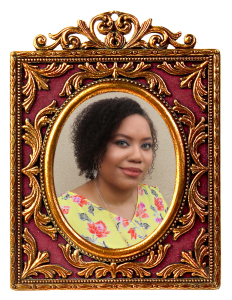
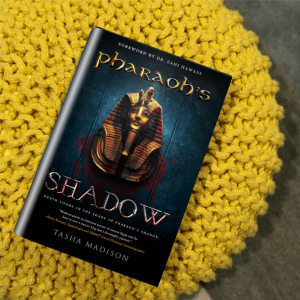
The Story of My Story
Like most authors, the genesis of much of my writing comes from real-life inspiration in the form of my own experiences, those of interesting historical actors, or simply intriguing moments in time. However, my latest novel, Pharaoh’s Shadow, started with an unsuspecting journey of gargantuan proportions.
Pharaoh’s Shadow is a historical fiction novel about the conspiracy to murder Ramesses III. Ever since I was a child, I have been enamored with ancient Egyptian history. If I didn’t have sun allergies, I would have likely pursued a career as an Egyptologist. Prickly skin and random blackouts due to overexposure quickly convinced me that this was not a practical vocation for me to consider. Nonetheless, I never grew tired of hearing my grandparents’ accounts of events long past. I would sit at their feet and eagerly listen to their recount of favorite memories or funny stories about their siblings, parents, and other family members.
My love of history is deeply rooted in a fond appreciation of my own family tree—all the bits and pieces of people I never met and the lives they lived that I wanted to better understand. As more and more family members passed away, it became increasingly apparent to me that I needed to memorialize as much as possible before my own family history was forever lost to time. My sister, Tamara and I, decided that we would attempt to learn as much as possible. She tried to track down information on our father’s side while I pursued additional details on our mother’s side. When, we both hit a dead end, in February of 2016, I decided to purchase a DNA kit to confirm the little we knew about our family history. I expected to find out what area of Germany my paternal great-grandmother immigrated from and hoped to learn more about my maternal great-grandmother’s Native American ancestry.
After about a month of impatient waiting, I finally received my results: 76.2% Sub-Saharan African, 20.6% European, and 3.0% East-Asian and Native American. The low Native American percentage was staggering. Obviously, the family photos didn’t tell the complete story of my heritage. Our Native American ancestry was clearly based on mere family lore. I felt devastated. Then, I realized, as I clicked to see more details of my European ancestry, Germany was so far down the line, that it was impossible for my great-grandmother to have been German. Instead, I saw British and Irish DNA. My great-grandmother immigrated from Germany, spoke German fluently, and even taught all of her children, including my paternal grandfather, how to speak in German. But, my DNA told a different story. I concluded that my great-grandmother must have merely been a German citizen but apparently of Irish/British descent. My DNA indicated that I most likely had a second-, third-, fourth-, or fifth-great-grandparent of 100% German ancestry born between 1770 and 1860.
My first thought? How am I going to tell my dad? He grew up with a very strong German background—eating sauerkraut, bratwurst, pickled herring, and German-chocolate cake the way typical Americans ate hotdogs and apple pie. Then, unexpectedly, upon further reflection, many of my own family traditions started to make sense. I remembered asking my mother as a child why we celebrated St. Patrick’s Day. I always thought it odd. Now, I realize the celebration was handed down through the generations (since I have Irish ancestry on both sides of my family). Suddenly, my mother baking Irish soda bread and serving cabbage with corned beef didn’t seem quite so strange.
As I read the more detailed 50+ page report, I also learned that I shared an ancient paternal lineage with Ramesses III, the reigning pharaoh of the twentieth dynasty in ancient Egypt. I would never have known that I belonged to the same haplogroup, along with all of his paternal-line descendants, had it not been for the CT scans of his mummy conducted only a few years ago.
Funnily enough, I was tempted to write and publish Pharaoh’s Shadow before my debut YA historical fantasy novel, Fabric of a Generation. However, I decided to wait so I could do more research. I’m glad I did! My original plotline was going to be a star-crossed romance about two ancient Egyptians during the reign of Ramesses III. When I learned of my true ancestry, I knew I had to tell pharaoh’s story—the life that he lived and lost—instead.
Pharaoh’s Shadow is about the dichotomy between the light and dark that coexists within us all. Every day, we have to choose whether we will give in to the shadows of evil or decide if we will continue to walk in the brilliance of loyalty that comes from true faith, family, and friendship.
To learn more, visit www.tashamadison.com.

